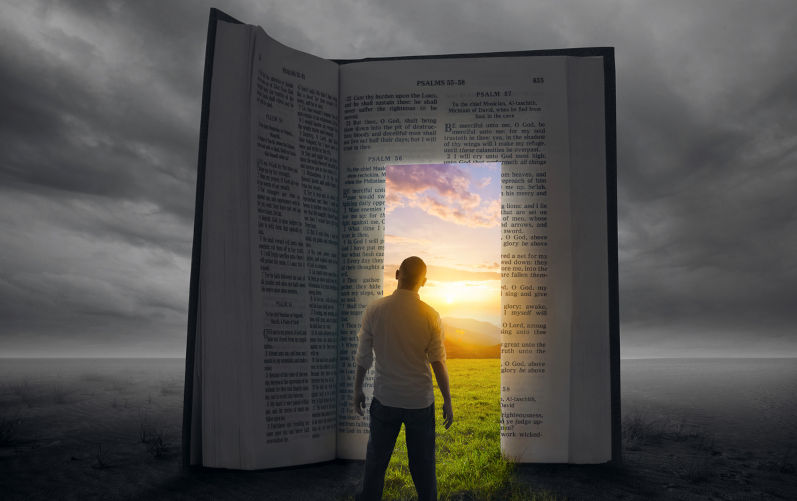Five books the Bible could do without
July 2, 2025
When ancient scriptures continue to shape modern ideology and policy, especially where harm is done, it becomes necessary to ask: do all parts of the Bible deserve to be treated as sacred?
The Bible’s canonisation was never a purely spiritual act. The books we now call Scripture were chosen through a series of ecclesiastical decisions shaped as much by institutional politics as by divine inspiration. Councils met, rival texts were excluded, and orthodoxies were enforced, all within the context of emerging Church power structures and imperial favour. That the Bible we have today reflects the decisions of bishops and emperors as much as prophets and apostles should give us pause.
In today’s world, appeals to the Bible are routinely used to justify everything from nationalism to patriarchy to discrimination. Nowhere is this more evident than in Zionist claims to a divine right to land, where biblical texts like Joshua are cited as eternal mandates.
Here are five books whose inclusion in the canon should be questioned.
- Joshua Joshua tells the story of Israel’s conquest of Canaan in stark, violent terms. Cities are razed, entire populations slaughtered, and it’s all portrayed as the will of God. For centuries, this was read as a distant moral puzzle. Today, it has become a live issue: modern Zionist ideologies have drawn directly on Joshua to justify settlement expansion and the displacement of Palestinians. Israeli school curricula include Joshua as national history; terms for “occupation” and “settlement” used by the IDF trace their lineage to the book’s language. When ancient scripture is used to underwrite settler-colonialism and ethnic hierarchy, we must ask whether its place in the canon helps sanctify modern injustice.
- Leviticus Best known for its purity codes, Leviticus has been used to condemn LGBTQ+ people, despite the fact that most of its laws on clothing, food, menstruation, and more are now considered irrelevant. The infamous verses in chapters 18 and 20 labelling same-sex intimacy an “abomination” have become prooftexts for religious homophobia, often with devastating mental health consequences. Selective literalism has turned Leviticus into a cudgel against queer communities while ignoring its own cultural context and broader irrelevance to modern life. If its rituals are now obsolete, why are its most damaging verses still treated as divine command?
- Revelation A controversial choice perhaps. Revelation is a hallucinatory apocalypse filled with beasts, blood, and cosmic vengeance. Revelation has been a favourite of cults, doomsday preachers, and Christian nationalists. In the United States, it has fuelled support for Israel not as a place of peace, but as a stage for Armageddon. Evangelical Zionism rests heavily on Revelation’s violent eschatology, viewing modern geopolitics as a countdown to divine judgment. This theology encourages conflict over reconciliation, militarism over diplomacy. Revelation may have offered hope to persecuted early Christians, but in modern hands, it too often stokes division, paranoia, and violence.
- Judges The book of Judges offers a grim tableau of a society spiralling into chaos. While some view this as a cautionary tale, others see a disturbing tolerance for moral horror. Two stories stand out: Jephthah’s sacrifice of his daughter to fulfil a vow, and the gang-rape and dismemberment of a Levite’s concubine. These so-called “texts of terror” are among the most misogynistic and violent in all scripture. The women in Judges are nameless, voiceless, and expendable. That these stories remain in the canon, often without context or critique, risks normalising trauma as part of God’s story.
- 1 Timothy This New Testament letter contains the line: “I do not permit a woman to teach or to have authority over a man.” For centuries, this single verse has been used to bar women from leadership in churches. Today, major denominations still cite 1 Timothy to justify male-only pastors, despite the contradictions this presents with other biblical affirmations of female leaders like Phoebe, Junia, and Priscilla. Scholarly consensus is that 1 Timothy was written in a specific cultural context with specific concerns, not as a timeless command. Yet its influence continues to stifle women’s gifts and reinforce patriarchal norms in faith communities.
To challenge these texts is not to discard the Bible, but to approach it with discernment. The canon was shaped by human hands. It is read and interpreted by human minds. We owe it to our communities — and to the vulnerable among us — not to treat every line as timeless truth, but to ask what continues to give life and what merely preserves old harm. Canonisation was a political act. Our reading must now be an ethical one.
The views expressed in this article may or may not reflect those of Pearls and Irritations..
David O’Halloran is an occupational therapist with nearly 40 years’ experience and lectures in Work and Labour Market Theory at Monash University. He is also the President of the Tasmanian Council of Churches.


